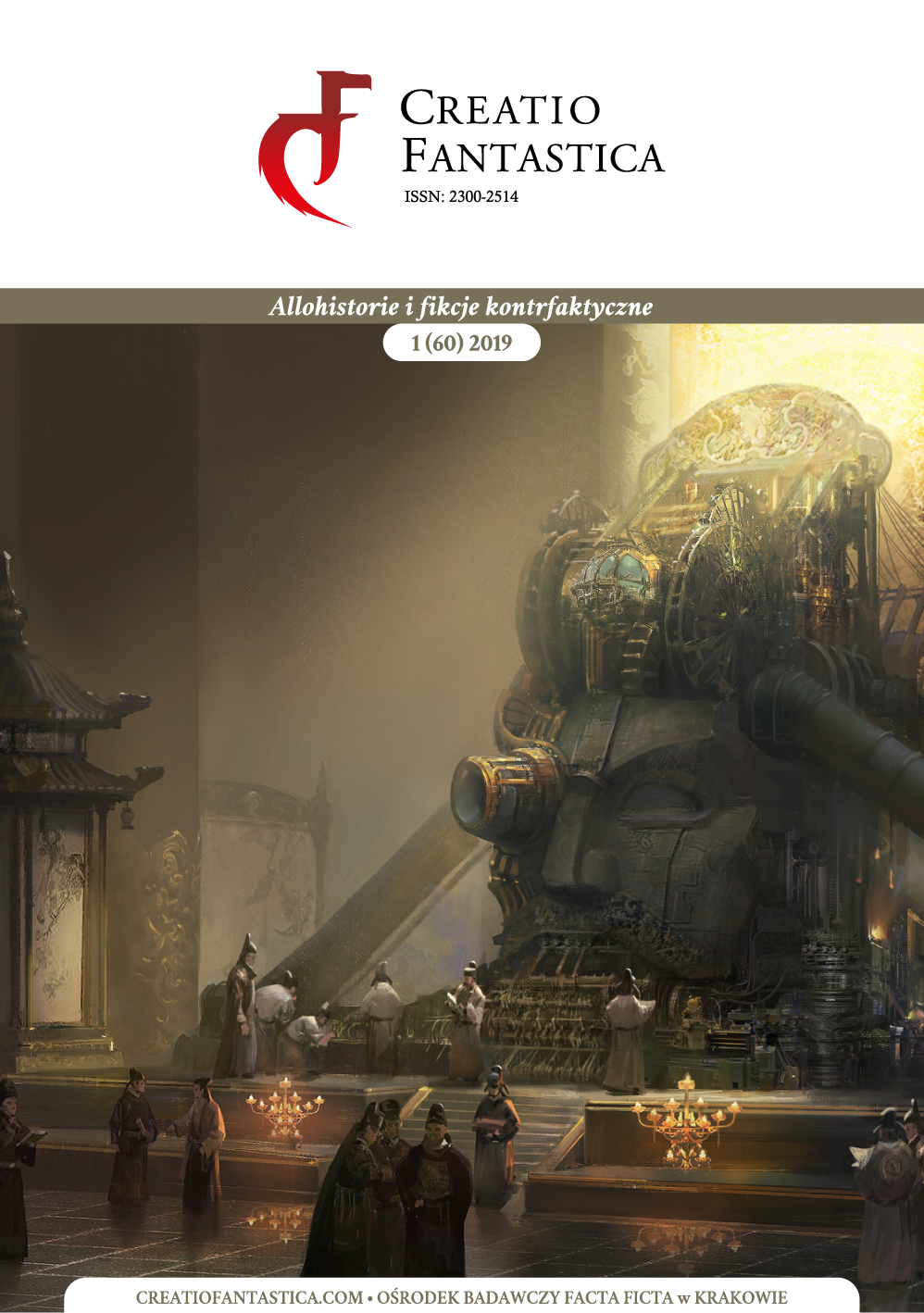Historia iterowalna w "Maszynie różnicowej" Williama Gibsona i Bruce'a Sterlinga
Iterable History in William Gibson’s and Bruce Sterling’s “The Difference Engine”
Author(s): Julia GerhardContributor(s): Krzysztof M. Maj (Translator)
Subject(s): Studies of Literature
Published by: Ośrodek Badawczy Facta Ficta
Keywords: iterability; counterfactuality; deconstruction; allohistory; Victorian age; The Difference Engine; Bruce Sterling; William Gibson
Summary/Abstract: The article analyses The Difference Engine (1990) as the fundamental representative of the steampunk genre and attempts to explore its steampunk features through the lens of Derrida’s concept of “iterability”. The study aims to show that the key principles of steampunk evoke the ethos of Derrida’s iterability since steampunk’s placement of the familiar historical (real) framework within a different (fictional) context―which consequently becomes altered and yet retains some of its originality―mirrors Derrida’s interpretation of the sign (which as he argues, can be cited multiple times and in various situations, but appears each time with a modified meaning, while still preserving some of its original meaning). The analysis focuses mostly on the discussion of how the historical events and historical actors are altered in Gibson’s and Sterling’s Victorian Britain and how the narrative itself, being a postmodernist text, represents a fusion of the historical and the fictional. This alteration, which can be considered an essential part of “estrangement” in steampunk, highlights the malleable nature of historicity and destabilizes the notion of history as a truthful representation of reality. Ultimately, this novel, by rewriting the past, posits that our present, and consequently future, has the potential to be transformed as they are both contingent on the history of the past.
Journal: Creatio Fantastica
- Issue Year: 60/2019
- Issue No: 1
- Page Range: 41-58
- Page Count: 18
- Language: Polish

